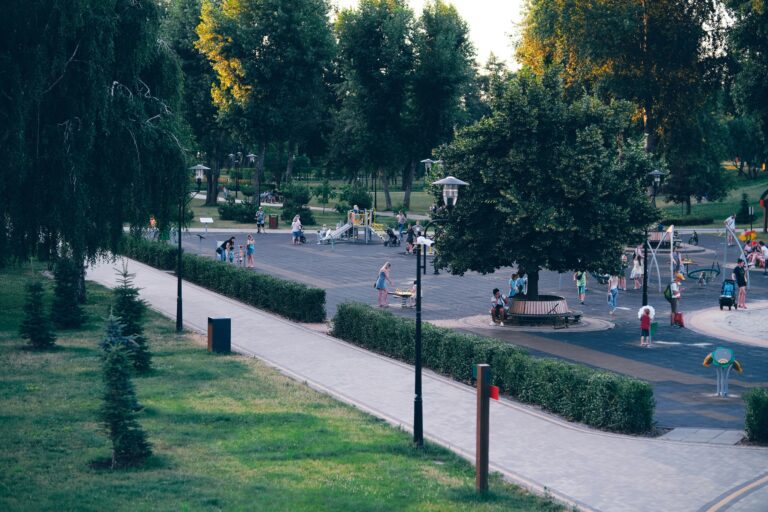The way we live, including how we move, is pushing us into planetary crisis, putting our future at risk.
Mobility is a topic that stirs passion. We witness heated arguments between those who hate or defend scooters and bikes, or between those who think it is fair or unfair that parking is becoming more expensive. In large part this is because mobility has crucial consequences for what we can and cannot access and whether we can access it easily, safely, comfortably and affordably.
The other side of the coin is that such access comes at a cost to the planet. The way we live – including how we move – is pushing us past critical points for the planet, putting even the near future at risk.
We require a compass to determine what is just or unjust, desirable or undesirable, that directs us towards generating well-being while respecting the limits of the planet. Unfortunately, this compass is not currently used to dictate public policy or to judge as a society our status quo or potential changes to it.
Instead, we have become obsessed with metrics and ways of thinking that lead us towards systems of limited and unequal access. These systems are carbon, natural resource and space intensive. Here are four examples of some of these obsessions and ways out of them:
1. Mobility obsession: thinking about proximity, digital alternatives and access.
Equating mobility with well-being is one of our great failings. We have forgotten that mobility is a means and not an end and we have become blind to the need to plan to create access. We ignore that success depends on a virtuous combination of mobility (connections), proximity between people and places that matter to us, and digital alternatives.
It is with this bias that we have given a large amount of public space to the private car – to the detriment of sustainability and proximity. This has generated territories that are intensive in mobility (and environmental impacts) but poor in proximity and access. We have also closed ourselves off from considering futures where we could significantly reduce environmental impacts by reducing mobility and increasing access.
2. Obsession with congestion: reducing carbon footprint and freeing up space.
Our obsession with congestion has reinforced our bias towards expansive, resource-intensive mobility. We prioritise cars being able to move without delay, and ignore absolute conditions that are crucial to living well within planetary limits. On the one hand, the size of the fleet and the distances it travels: reducing the impact on materials and resources, as well as direct and indirect emissions, requires smaller fleets and reducing overall private car use.
On the other hand, the space and infrastructure required: reducing congestion at any cost in terms of space is not only inefficient (due to induced demand) but a luxury we cannot afford. Given the need to regenerate green space for adaptation, ecosystem regeneration and health reasons, reducing the spatial footprint of transport is just as crucial as reducing its carbon footprint. And if we want to improve access, then freeing up space for sustainable modes and for creating proximity is also indispensable.
3. Obsession with parts: thinking in systems.
Our third failing is to think more about the parts than how they are organised. We optimise systems that do not work instead of transforming them. Upgrading vehicles with technology will lead to a dependence on the high-tech car, but it will not solve unequal access or allow us to live within planetary boundaries.
Thinking in parts contributes to the polarisation of society. It emphasises individual change, turning the issue into a war between the willing and the unwilling. Thinking in systems allows us to recognise the crucial role of the system (i.e. interaction between infrastructure, relative prices, advertising, public policy, social imaginaries, etc.) in promoting car-dependent lifestyles. The emphasis is shifted to the system change that could enable a social transformation.
4. Obsession with the status quo: giving ourselves the chance to imagine a different future.
Our love-hate relationship with the status quo makes us complain and at the same time overestimate the well-being it generates. We think of change as an imposition, but rarely consider what is already imposed on us (e.g. long commutes, noise, the impossibility for our children to travel by bike, or the lack of safe and healthy public space). The status quo is not just what we see. It includes what we believe and conceive as possible.
Questioning what we take for granted as freedom or fairness and even the functions assigned to infrastructure (e.g. our streets) is more necessary than ever. Can we achieve a dialogue – without simulation – between policy makers, stakeholders and citizens to co-create a different future? How can we open innovative spaces that promote a constructive exchange to achieve an agreement with citizens and decision makers that is not a fantasy, but the route to decision-making for a system with equitable access under planetary boundaries?
It is not only critical, but probably one of the most important steps in this desirable transition from pernicious obsessions to virtuous systems.
Changing the compass, informing and opening spaces for constructive dialogue, and facilitating the implementation of ambitious public policies to transition towards systems that improve life quality within planetary boundaries is precisely what we seek to do at the Hot or Cool Institute.
——————————————————-
This article was originally posted in Spanish by Expansión Política. It was translated and reposted with approval of the author and the publisher.






